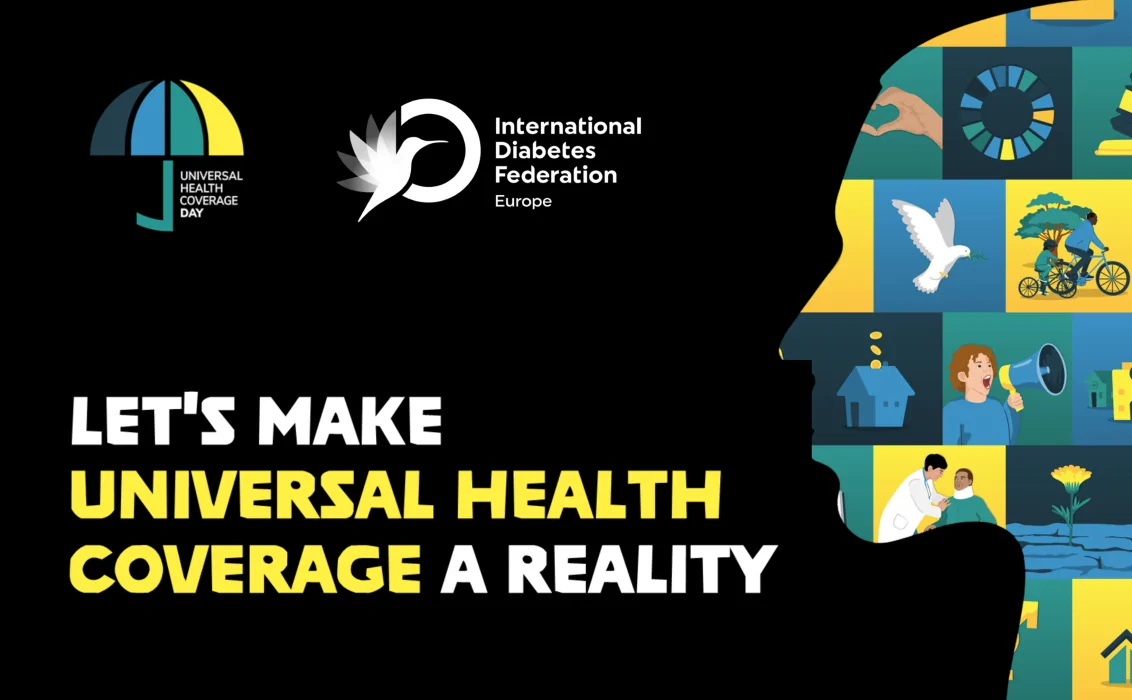The key to addressing non-communicable diseases like diabetes lies in eliminating social inequalities.
The Diabetes epidemic is pervasive. In 2019, 59 million adults in Europe were living with diabetes and this figure is forecasted to rise to 66 million by 2030. This has and will have wide-ranging ramifications for society at large. Diabetes-related costs account for around 9% of total health expenditure (approx. €100 billion per annum), 75% of which is due to preventable complications. Diabetes reduces the life expectancy of people aged 40-60 by 4-10 years and is causally linked to other non-communicable diseases such as cancer and cardiovascular disease. Additionally, in 2015 people living with diabetes accounted for the third-largest number of potentially avoidable hospitable bed days spent in Europe, among all the major chronic diseases.
To us at IDF Europe it has become painfully apparent that things need to change to turn the tide on the diabetes epidemic – and this begins with tackling the social determinants of health.
The social determinants of health are those factors that influence one’s health, such as employment, education, living and working environment, income, housing, and access to high-quality, nutritious food. These factors can influence health outcomes because the environment in which one lives determines the lifestyle that one leads (food consumption, activity levels, stress levels, etc.). The ‘socio-biological cycle of diabetes’ encapsulates how social factors like poverty and unemployment lead to chronic stress which causes psychological and biological responses in the individual. This can culminate in depression, anxiety, and self-destructive behaviours (smoking, increased alcohol intake, etc.) which, over time, leads to higher blood pressure, cholesterol and blood glucose levels – key risk factors for developing Type 2 diabetes.
In order to break the cycle, we need to look at the root cause of the issue. Thus, the key to addressing non-communicable diseases like diabetes lies in eliminating social inequalities.
The Social Summit in Porto fails to address health
In 2021, Portugal took up the Presidency of the Council of the European Union with the mammoth task of leading the COVID-19 recovery process. Part of this recovery plan is to strengthen European health systems against future health threats to create a resilient ‘European Health Union’. However, at the Social Summit held on May 7th and 8th in Porto, health is not on the agenda. This was a key opportunity for the Presidency to highlight the critical role the social determinants of health play in preventing future health crises, including viral ones like COVID-19.
The European Pillar of Social Rights Action Plan, which will be discussed at the Summit, was published on March 4th of this year. It outlines how to turn the 20 key principles of the European Pillar of Social Rights into concrete actions. Many of these principles are directly and indirectly linked to health outcomes, for example, healthcare, wages, education, equal opportunities, and healthy work environments. This is a promising document that proves the European Union’s commitment to eliminating social inequalities in Europe. Therefore, it is unfortunate that health will not be discussed at the Summit. We encourage European and national policymakers to try to take a holistic ‘health-in-all-policies’ approach to all future conferences and we at IDF Europe will continue to advocate to get diabetes on the European agenda.
Read this excellent article by José Manuel Boavida, President of APDP (Associação Protetora dos Diabéticos de Portugal) and IDF Europe Board Member, who highlights the importance of addressing the social determinants of health.
If you are interested in learning more about the social determinants of health, join this webinar to launch the Special Initiative for Action on the Social Determinants of Health organised by the WHO which will be health on 12th May.



